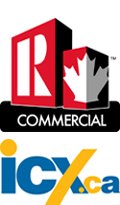Top 3 Expenses Most Often Missed by New Investors
When calculating return on an investment (ROI) or internal rate of return (IRR) there are a number of expenses to take into account and surprisingly, there are a few that get overlooked entirely. I've noticed that, particularly new investors (and often brokers who should really know better!), miss a few essential expenses far more often than I would have expected.
When working on calculating an ROI or IRR, you always need to start with a reconstruction of the net operating income (NOI). A basic worksheet should look something like this but may be more or less sophisticated based on the asset class:
In researching properties for buyer clients, I always ask for a copy of the income and expenses from the owner or from the broker as reported by the owner if the property is listed. A complete picture of the income and expenses, along with all other pertinent physical, demographic, and economic information about the property and the market, is the only way to properly analyze a property on behalf of my client. Omissions or errors here have a direct impact on the valuation of the property and are therefore essential.
I almost always receive a list of the monthly rents or an annual summary of the gross income - though not everybody seems to grasp the concept of total gross income and often it takes a couple of calls to get all of these figures. I usually get a summary of the expenses as well, though often there are a number of glaring omissions. Either by design, because the numbers are too large and the person providing the information is hesitant to be open with me, or by mistake because they don't actively track their expenses or have a poor record keeping system, or simple ignorance.
The top 3 most often missed expenses are basic to the operating expenses of any property, but they are sometimes the most difficult to obtain. They are:
- Property and liability insurance.
- Repairs and maintenance.
- Vacancy and credit losses.
Property and liability insurance.
While not necessarily a large expense in itself, if you are looking at a smaller investment where every penny counts, missing an expense of this nature can have a very serious impact on future profitability - even if such an omission is innocent.
Repairs and maintenance.
Usually this one is omitted intentionally. Why? "Because the roof is only 4 years old, and the paving is only 2 years old...what else do you think needs to be done?!" From the inexperienced buyer's perspective, it often is left out for the very same reason - there is sometimes a mistaken belief that just because repairs have recently been made that there won't be any further repairs needed for the foreseeable future. Maintenance items like, snow removal and grass cutting are often ignored by first time investors because they intend to do the work themselves and therefore don't feel it's necessary to account for those expenses. But isn't your time worth anything to you? Even if you plan on doing the work yourself, you should be compensated for your time!
Vacancy and credit losses.
This is the most often missed expense in my experience. If the building is full, why should you account for vacancy? There are a couple of reasons: 1) Your tenants are not invincible - one of your tenants could step in front of a bus tomorrow and you'd be looking for a new tenant. If the property is a small one, and one of your tenants just decides to leave or goes out of business, you could be looking at significant carrying costs while you re-lease the space. 2) In the long term, some credit losses are unavoidable. Even with the best of tenants with the best of intentions, occasionally things don't work out the way everyone hopes and there's just too much month left at the end of the money. 3) The last, and maybe the most important, is that when you apply for financing on any investment property, the bank or lender you use WILL include a vacancy allowance to account for lost income that could affect their ability to collect your payments. Go into the financing application process well informed or you could be in for a rude awakening.
So there you have them, my top 3 most missed expenses by new investors. Tell me what you've experienced as a buyer or as an advisor; ever run into these or other items that have put the brakes on a deal you were hoping to close?




0 comments:
Post a Comment